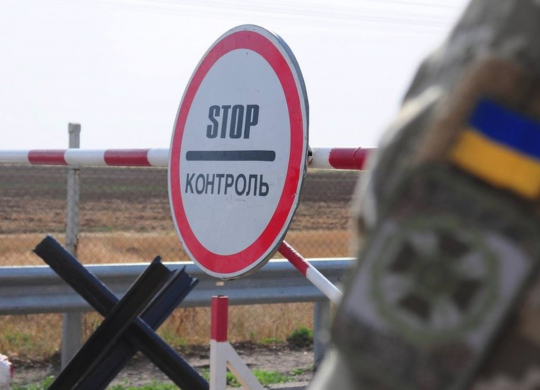- How to prepare for a nuclear explosion?
- Information preparation for a nuclear explosion
- What to do in case of a nuclear strike?
- What to do after a nuclear strike?
- How long should I stay in the shelter after a nuclear explosion?
- How and when can I go outside?
- Protect yourself and your loved ones with insurance that covers war risks!

Today, the world is facing new challenges, and the threat of a nuclear explosion no longer seems to be just a theory. In such circumstances, preparation becomes not just a choice, but a necessity. Learn about the right actions to take in the first minutes after a nuclear explosion and get up-to-date advice on how to prepare for it
Russia regularly threatens to use nuclear weapons, so tips on how to survive a nuclear explosion are becoming relevant. We share instructions on how to pack an emergency suitcase and how to act to reduce the damage from nuclear weapons.
How to prepare for a nuclear explosion?
In the event of a nuclear threat, careful preparation can save lives. The main steps include choosing a safe shelter, creating an emergency suitcase, and ensuring access to up-to-date information.
Choosing a shelter in case of a nuclear explosion
Radiation and a shock wave are the main threats of a nuclear explosion. A shelter should protect against both.
The best place to take shelter:
✔️ Basements and underground structures: they provide better protection from radiation and debris.
✔️ Interior rooms (bathroom, toilet, storage room) located away from windows and exterior walls.
✔️ Massive buildings made of brick or concrete: in high-rise buildings, choose the middle floors.
Radioactive materials settle on the outer walls and roof. In a multi-storey building made of brick or concrete, the safest rooms are closed rooms on the middle floors.
Note: Brick, concrete, and earth absorb radiation better than wood, drywall, or metal.
Equipment of a shelter in case of a nuclear explosion
✔️ Seal the shelter: prepare film, tape to seal windows and ventilation holes.
✔️ Prepare a supply of water and food: calculate for at least 3 days. Food should be hermetically sealed.
✔️ Ensure communication: have a charged radio or spare batteries for it.
Important! Plan in advance the route to the nearest shelter from each place you visit. Explore all alternative routes.
Prepare an emergency suitcase
An emergency suitcase should always be available at home, at work, and in the car. You should put in it:
- Essentials: change of clothes, thermal clothing, drinking water (1.5 liters per person per day), long-term storage food (dry food, canned food).
- Protection and hygiene: FFP2/FFP3 respirators, raincoat, goggles, gloves, napkins, soap, disinfectants.
- Medicines: first aid kit, potassium iodide, painkillers, antiseptics, personal medicines.
- Other: flashlight with batteries, chargers, dosimeter, compass, map, documents.
Additional items to be purchased:
- FFP2 or FFP3 respirators
- Durable plastic bags,
- Film/plastic raincoats
- Adhesive tape (preferably reinforced)
- Household rubber gloves
- Goggles for eye protection
- Nail polish remover or pure acetone
- Map and compass.
- Dosimeter
- Potassium iodide
- Radio.
The radio may be the only source of information if other communication networks are damaged by the explosion.
Caution. Do not use potassium iodide “for prophylaxis”. The drug is effective only for a short period of time. If used for no reason, it can cause thyroid dysfunction. The drug will be effective 6 hours before a possible exposure to radioactive iodine and 8 hours after such exposure.
The Ministry of Health explained how to take potassium iodide correctly if necessary:
- For children under 1 month - 16 mg;
- Children from 1 month to 3 years - 32 mg;
- Children from 3 to 12 years old - 62.5 mg;
- Adolescents aged 13-18, adults under 40, pregnant and lactating women - 125 mg.
The Ministry of Health does not recommend the use of potassium iodide in adults over 40 years of age, as at this age the thyroid gland hardly accumulates radioactive iodine. However, if a woman aged 40 is pregnant or breastfeeding, she should take a dose of iodine to protect herself and her child. During pregnancy and lactation, the thyroid gland is more active and can absorb more radioactive iodine.
Earlier we wrote about 1000 days of war in Ukraine
Don't want to miss important updates and useful materials? Subscribe to our weekly newsletter!
Information preparation for a nuclear explosion
✔️ Install apps to alert you to the danger.
✔️ Check out the map of shelters in your area.
Tip: Conduct family training: where to gather, how to respond quickly to an alarm, what to take with you.
The most reliable shelter is a basement. Underground shelters can protect not only from radiation, but also from debris and blast waves.
Please note! If you are looking for a profitable solution to protect your car, Mini CASCO is an insurance policy that covers the most common risks, keeping your budget under control.
We wrote about home insurance in Ukraine in our previous article
What you get with Mini CASCO:
✔️ Protection against road accidents, regardless of who is to blame.
✔️ Compensation for damage caused by the elements or unforeseen events.
✔️ Compensation for vandalism or minor damage.
What to do in case of a nuclear strike?
In the event of a nuclear strike, you need to act quickly. If you are notified of a nuclear threat, immediately go to the nearest shelter and take your emergency suitcase with you.
✔️ If you are not in an underground shelter, do not go near windows, stay as far away from the outer walls and roof as possible.
It is possible to survive near the epicenter of the explosion only if you are in a shelter.
If you find yourself outside during an explosion, you should immediately find a shelter or hide in a recess or behind any strong object that can protect you. It is better to lie face down, cover yourself with clothes, cover your head with a hood or your hands.
✔️ If you are in a vehicle during an explosion, you should stop and duck inside the car.
You should stay in a safe position until two shock waves that sound like thunder have passed. After that, you have 10 minutes to get to the nearest shelter before the fallout begins.
What to do after a nuclear strike?
As soon as you are in the shelter, take off your dirty clothes and put them in a plastic bag. If possible, wash exposed areas of your body and hair with soap and water; if there is no water, wipe them with wet napkins or a damp cloth. Put on clean clothes, and do not touch your eyes, nose, or mouth unnecessarily. Cover your respiratory system with a respirator and DO NOT turn on the ventilation.
Please note! While in the shelter, you can eat food and drink water only from sealed packaging.
How long should I stay in the shelter after a nuclear explosion?
At least 24 hours. The longer you stay in the shelter, the lower the dose of radiation you will receive. But if you are in a bad shelter and there is a better one nearby, move to it at least an hour after the attack.
The level of threat from the outside also depends on the distance to the epicenter of the explosion, wind direction, and bomb power. If you have a dosimeter, you can measure the radiation level outside the shelter yourself. A reading of up to 30 microroentgens per hour (0.3 microsieverts per hour) is considered safe.
How and when can I go outside?
Before you go outside, you should put on a respirator, gloves, raincoat, goggles and shoe covers, and put your belongings in a bag. For better protection, you can wrap tape around areas that do not fit well.
The respirator should be changed every three hours, and the raincoat every 8-10 hours. They should be taken off in safe rooms, preferably in basements.
If you get your hands or face dirty, wipe them with paper napkins dipped in nail polish remover. If it starts to rain, take shelter immediately.
Protect yourself and your loved ones with insurance that covers war risks!
In a world where the threat of a nuclear explosion and war is becoming more and more real, it is important to be prepared for the unexpected. Insurance covering war risks will provide you with peace of mind and financial protection in the most critical moments.
Take care of yourself!
Just a reminder. There are cities in the West of Ukraine that are safer during military operations than cities in the East and South of Ukraine
Want to know more? Read the latest news and useful materials about Ukraine and the world in the News section.
We recommend purchasing it for a safe and comfortable trip to Ukraine:
Visit Ukraine Insurance – insurance covering military risks for entry and travel in Ukraine;
Visit Ukraine Car Insurance – car insurance with extended coverage in Ukraine;
Visit Ukraine Legal Advice – comprehensive legal support on entry to Ukraine;
Visit Ukraine Tickets – bus and train tickets to/from Ukraine;
Visit Ukraine Tours – the largest online database of tours to Ukraine for every taste;
Visit Ukraine Hotels – hotels for a comfortable stay in Ukraine;
Visit Ukraine Merch – patriotic clothing and accessories with worldwide delivery.
© 2018-2024, Visit Ukraine. Use, copying or reprinting of materials on this site is permitted only with a link (hyperlink for online publications) to Visit Ukraine.
All rights reserved.
Recommended articles
1 min
War
1 min
War
1 min
War



